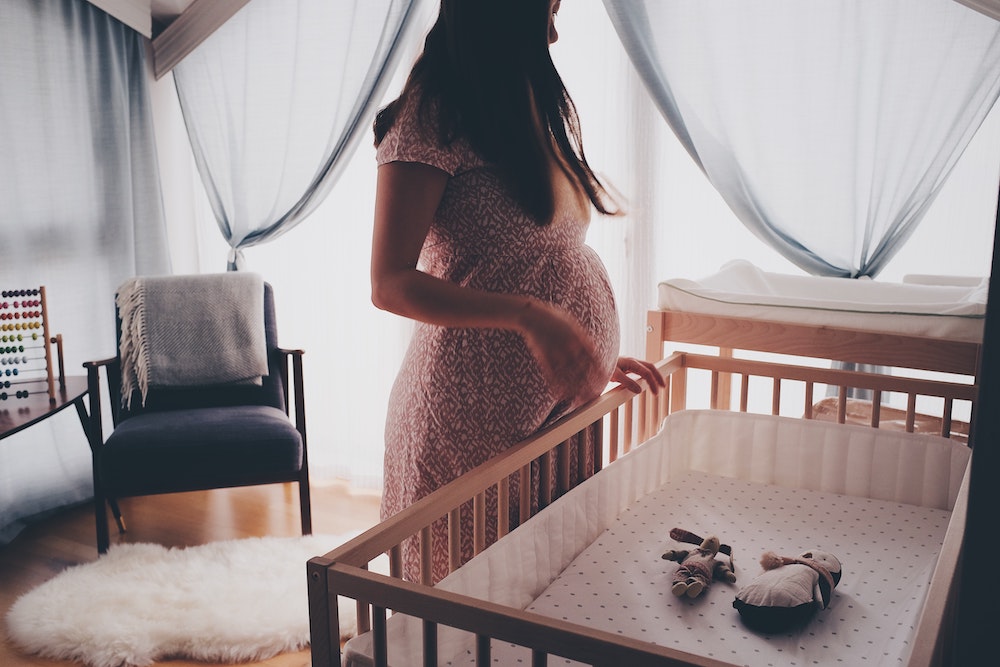
A Different Approach to Everyday Life: A Return to One's Own Values Abroad
Living abroad not only opens up a completely new view of the country and its people. The perception of worldwide cultural differences also does something to one’s own perceptions. What is desirable? What belongs to the things that are absolutely necessary and what are things that are considered absolutely necessary in one culture and play no role at all elsewhere? This becomes very vivid if you make yourself aware of an everyday situation in a very concrete way. In this article, I look at the different designs of nurseries around the world and what this has to do with a return to our basic instincts.
How different everyday life is lived abroad
I am a big fan of the podcast „Deutschland Funk Kultur“ in which foreign correspondents talk about their everyday life. This week it was about the topic of children’s rooms and how differently they are designed in the countries. (You can listen to the whole episode here in German).
Everywhere there seems to be a different concept regarding nurseries. In one country, of course, children have their own room since birth, including a changing table, bed and their own toys. In another country, children share a room and only for playing. They sleep in the parents‘ bed. Again, elsewhere, there simply isn’t the room and the play area is outside. Considering how much pressure there is on the subject in Western countries, I find it fascinating. Social media, especially Instagram, is full of beautiful children’s rooms that suggest: Only with so much space and details will your child spend a happy childhood. It’s good to take a look at the bigger picture and see what role nurseries play in other countries.
Brazil
Brazil is a country with great financial disparities. Sometimes 10 people have to sleep in one room. Sometimes a hammock is hung over the mattress, which is taken down again during the day. A room of one’s own is a luxury in any case. In richer families, the children’s rooms are furnished in a more traditional way. The family minister in Bolsonara’s cabinet clearly specifies: Pink for girls, blue for boys.
Israel
The children’s rooms are on average smaller than in Germany, about 9-10 square meters. The newly built apartments are also cut in this way. It is interesting that many children’s rooms are located in the so-called bunker. In many Israeli apartments there is the Mahmat, which is a legally prescribed room with thick walls that can be sealed airtight. Many families think what to do with this shelter and put the children’s room in this mahmat in peacetime.
Kenya
The classic concept of a child’s room is not present. It really only exists very rarely. The middle class often has one room where all the children do their homework.
Marocco
In rural areas, it is rather unusual for there to be a room reserved for playing. In the middle class, family structures are different and there are fewer children. Often the apartment is larger and children share a room.
Mostly, it is the financial situation that decides whether there are dedicated children’s rooms in the apartments. But it is also the cultural influence and the family dynamics that are different everywhere.
How living abroad opens up new perspectives
So what can we learn from this example? It shows that we sometimes chase after ideals and ideas that we ourselves have been taught in our social bubble. But as soon as you immerse yourself in a foreign culture and experience everyday life there, away from tourism, you learn that many things are valued quite differently. So if in one country childcare from 4 months is unthinkable and in another country the rule, what does that tell us? If in one country the list of things a baby needs is endless and in another country it has never even been heard of, what does that tell us? If in one country only breastfeeding is considered healthy food and in another country the use of pre milk shows that you belong to a higher class what does that tell us?
Living abroad makes us listen to our instincts again
So when there are different ideas all over the world about how things should be done and what is necessary to be happy, this diversity gives you a certain serenity. And it is an invitation to listen to your instinct again. What do I actually want? What is important to me? What do I want to allocate space and money to? It is very difficult to swim free from one’s own bubble of social expectations. It helps to have spent some time abroad and to build up a geographical distance between expectations and your own desires.
It Takes Time to Break Free from Social Obligations - Perspective of Happy Women Abroad
My 30 interview partners described it similarly. All of them were women who had gained a professional foothold abroad and were confronted with the question of what their own value system looks like and how to set their own priorities when they are so far away from home. Here are a few excerpts from our conversations:
“Now that I moved abroad I am feeling more free than before in Brazil. My family is far away and can’t see what I am doing. I got the new position because I was lucky but also because I made myself available and showed my expertise on LinkedIn.”
“I don’t care about the opinion of society. It is my personal vision
to live in a world where everyone can live according to their own ideas. Therefore, I personally like to communicate that I work full time and then I don’t want to hear any opinion.”
“By living abroad for so long, you come into contact
with so many different people that you can pick out your own life model. I found that very liberating. But that only came after some time abroad. In the beginning, the Expat Partner image weighed heavily on me. That was a process of detachment.”
“By living abroad for so long, you come into contact with so many different people that you can pick out your own life model.”
My conclusion
Diversity gives you a wonderful gift when you accept it: It allows you to return to your own ideas and values with serenity and calmness, to turn your back on the Instagram algorithm and to listen to your gut feeling again. What do you hear when you allow the thought that there are different solutions for the same problem? Listen carefully for once.
I hope you got something out of this article. I look forward to the exchange with you and invite you to my last two Global Coffee Dates before the summer break. The topics will be living abroad or returning to your home country and in small breakout sessions you will get to know great women from all over the world. Here you can register for free.












4 Antworten
Planning an international move can be overwhelming, but with the right preparation, it becomes much easier. From decluttering to organizing essential items, every step counts toward a smooth transition. Check out these affordable residential moving services in Downtown Denver to ensure a hassle-free relocation experience.
Relocating to a new home can be stressful, but choosing the right moving company can make all the difference. Whether you’re moving across town or across the country, professional movers can help ensure a smooth transition. Discover the best residential movers in Downtown Denver for reliable and affordable moving services.
Balancing everyday life during a move can be overwhelming, but with the right help, it becomes manageable. Professional movers can take care of the logistics, allowing you to focus on settling into your new home. Trust the professional home movers in Downtown Denver to make your relocation smooth and hassle-free.
Great post! These air travel hacks are super helpful for anyone trying to save a little extra cash on flights. I especially love the tip about booking flights on Tuesdays – I never knew that! Also, avoiding baggage fees by packing light is a game-changer. I’ll definitely be using these tips for my next trip! Thanks for sharing!